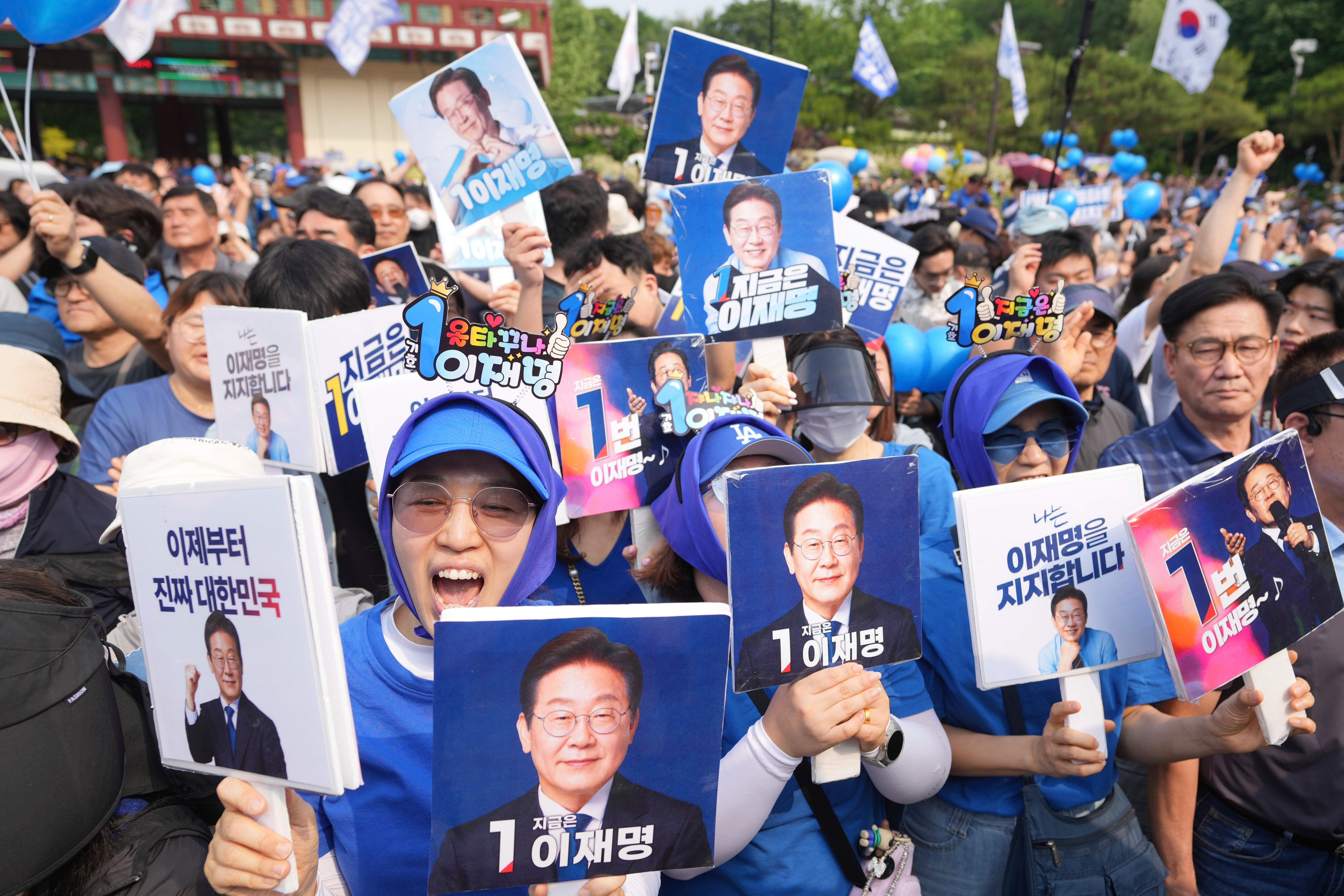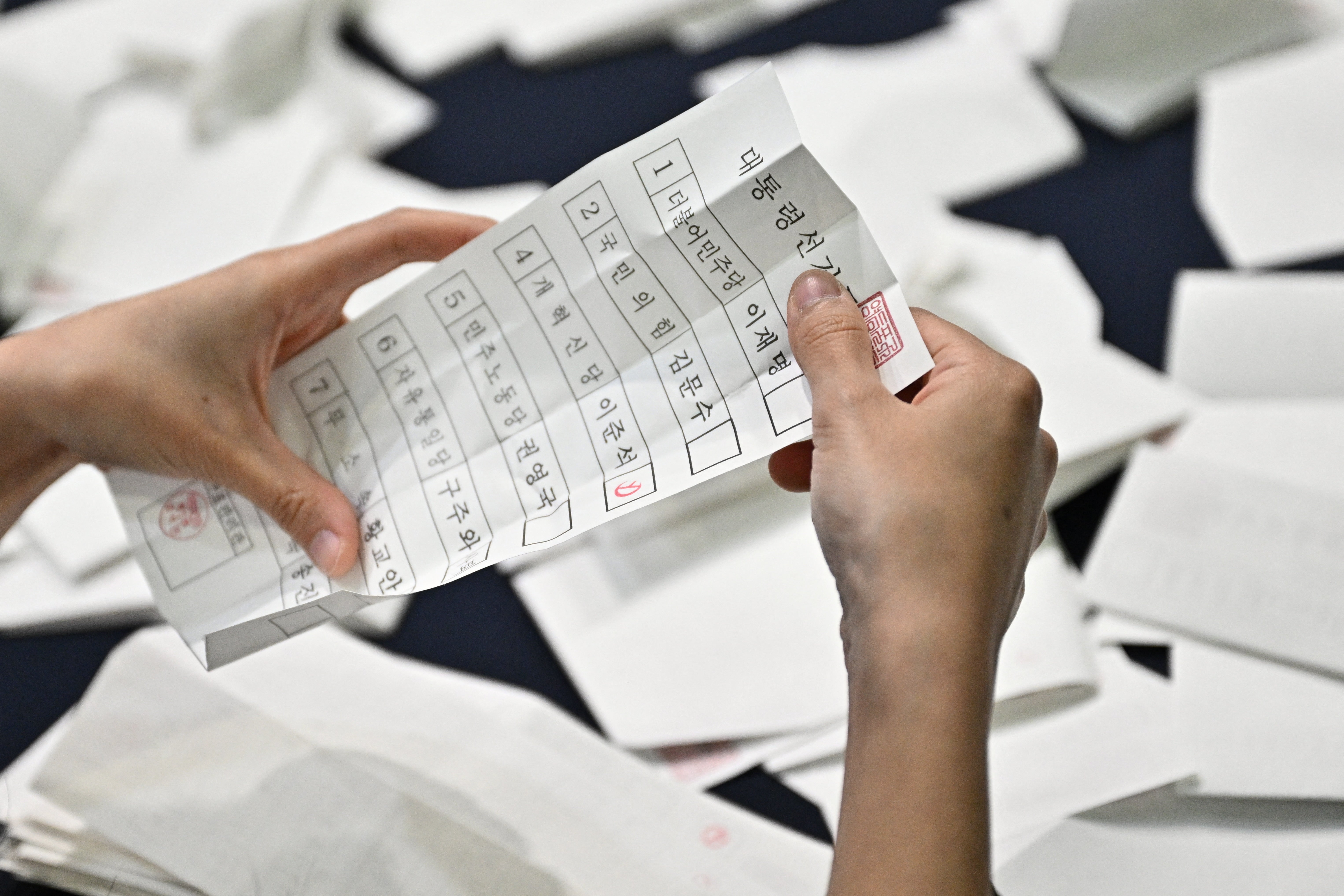
Liberal opposition candidate Lee Jae Myung was elected president of South Korea on Tuesday, promising to unite the country six months after it was shaken by a surprise attempt to impose martial law.
With a clear lead in the 85 per cent of votes counted so far, he told supporters he would also find a way for the country to coexist with North Korea through dialogue and communication.
His conservative rival, Kim Moon Soo of the People Power Party (PPP), conceded the race.
Lee’s victory stands to usher in a political sea change in Asia’s fourth-largest economy, after the backlash against the martial law episode brought down conservative Yoon Suk Yeol.
Nearly 80 per cent of South Korea’s 44.39 million eligible voters cast their ballots, the highest turnout for a presidential election in the country since 1997, with Lee terming the polls “judgment day” against Yoon’s actions and the PPP’s failure to distance itself from that decision.
A joint exit poll by broadcasters KBS, MBC and SBS, which has in previous elections mostly been in line with the final results, put Lee on 51.7 per cent and Kim on 39.3 per cent.

The martial law decree and the six months of ensuing turmoil, which saw three different acting presidents and multiple criminal insurrection trials for Yoon and several top officials, marked a stunning political self-destruction for Yoon and effectively handed the presidency to Lee.
Yoon was impeached by the Lee-led parliament, then removed from office by a constitutional court less than three years into his five-year term.
“I was here on 3 December after martial law was declared and 14 December when Yoon was impeached,” said Choi Mi Jeong, 55, a science teacher who gathered outside parliament to hear Lee speak after the election. “Now Lee Jae Myung is becoming president. I hope he will become a leader who supports ordinary people, not vested interests, not a small number of riches.”
Official results were expected to be certified by the National Election Commission on Wednesday morning after ballots are sorted and counted by machine, then triple-checked by election officials by hand to verify accuracy.
The winner must tackle challenges including a society deeply scarred by divisions made more obvious since the attempt at military rule, and an export-heavy economy reeling from unpredictable protectionist moves by the United States, a major trading partner and a security ally.

Lee is expected to be more conciliatory towards China and North Korea, but has pledged to continue the Yoon-era engagement with Japan.
There were no female candidates running in Tuesday’s election for the first time in 18 years.
Despite polls showing wide gaps between young men and women, gender equality was not among the key policy issues put forward during this election, a stark contrast from the 2022 vote.
“One thing I am a bit frustrated about with mainstream candidates whether Lee Jae Myung or other conservative candidates is they lack policy on women or minority groups,” said Kwon Seo Hyun, 18, a student.
Reuters and Associated Press contributed to this report
Lee Jae Myung: Can the man set to be next leader bring stability to South Korea?
Exit polls in South Korea election show huge victory for left-wing leader Lee
South Korea votes in snap presidential election after six months of political chaos
South Korea election: The leading candidates, key dates and top issues
Big Ocean breaks new ground as K-pop’s first deaf group
Backlash against K-pop star’s deleted photo shows pressure to remain apolitical







